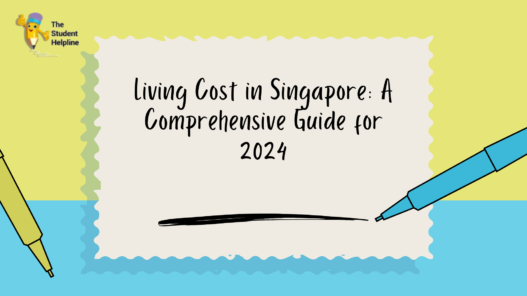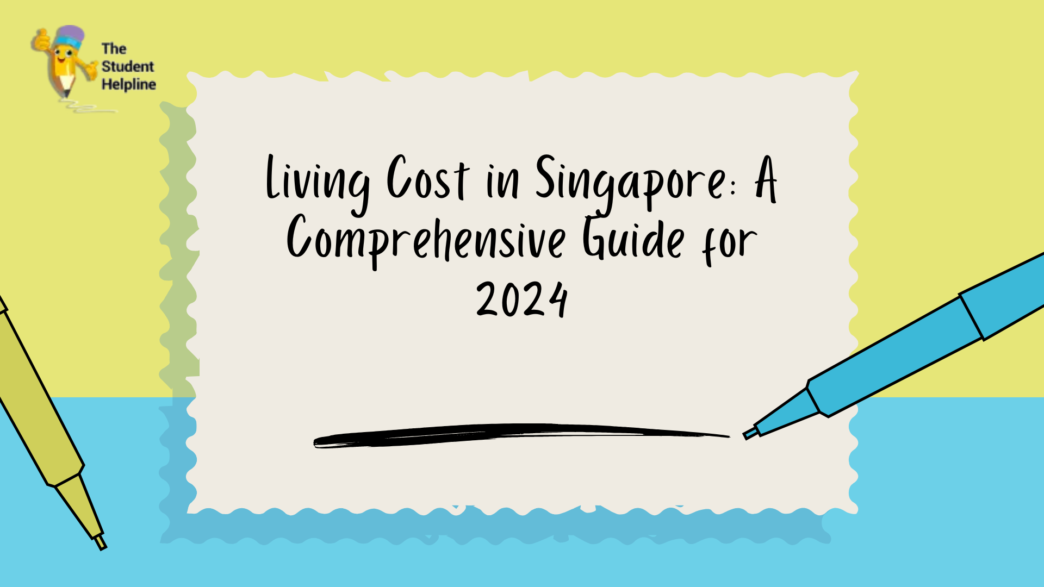Singapore, known for its impressive skyline, economic prowess, and cultural diversity, continues to be one of the top global destinations for expats and tourists alike. As we head into 2024, understanding the living cost in Singapore is crucial for anyone planning to move or live in this vibrant city-state. In this detailed guide, we break down all the necessary components that contribute to the cost of living in Singapore, from housing and utilities to transportation and food. By the end of this article, you’ll have a comprehensive understanding of what to expect financially when living in Singapore.
1. Housing and Rent in Singapore: What to Expect in 2024
The housing market in Singapore is one of the most important factors that determine the overall cost of living. In 2024, the demand for housing in Singapore remains high due to its position as a global financial hub, which means that rent prices can vary greatly depending on the type and location of the property.
Types of Housing in Singapore
- HDB Flats: These are public housing units owned by the government. They are typically the most affordable option for Singaporean citizens and permanent residents. For expatriates, renting an HDB flat is not allowed, so the focus shifts to private properties.
- Condominiums: Private condominiums offer more amenities such as pools, gyms, and 24/7 security, but they come at a higher cost. Rent for a 1-bedroom apartment in a good neighborhood ranges from SGD 2,500 to SGD 5,000 per month, depending on the location and size.
- Landed Properties: For those with a higher budget, landed properties such as bungalows and semi-detached houses are available. These can cost upwards of SGD 6,000 per month.
Average Rent Prices in Singapore (2024)
- 1-Bedroom Condo: SGD 2,500 – SGD 5,000
- 3-Bedroom Condo: SGD 4,500 – SGD 8,000
- Landed Property: SGD 6,000 and above
It’s important to note that rental prices in Singapore are subject to fluctuations based on the neighborhood. Central locations such as Orchard Road, Marina Bay, and Raffles Place tend to have higher rental rates due to their proximity to business districts and amenities.
2. Utilities: Monthly Expenses for Basic Services
In addition to rent, utilities are another significant cost for residents of Singapore. Utilities in Singapore include electricity, water, gas, and internet. For a typical 2-3 bedroom apartment, the average monthly utility bill can range from SGD 200 to SGD 400.
Breakdown of Utility Costs
- Electricity: Costs can vary depending on usage, but on average, a monthly electricity bill can be around SGD 80 to SGD 150.
- Water: Water bills are typically more affordable, ranging from SGD 30 to SGD 60 monthly.
- Internet: High-speed internet is widely available in Singapore, with prices ranging from SGD 40 to SGD 80 per month.
- Gas: For cooking and heating, gas costs are relatively low, averaging around SGD 20 to SGD 50 per month.
It is advisable to budget about SGD 300 to SGD 500 monthly for utilities, depending on your lifestyle and usage.
3. Transportation Costs: Getting Around Singapore
Public transportation in cost of living in Singapore is known for its efficiency, cleanliness, and affordability. The city boasts an extensive MRT (Mass Rapid Transit) system, buses, and taxis that provide convenient access to all parts of the island.
Public Transport
- MRT & Bus Fares: The cost of public transportation depends on the distance traveled. For a typical trip, you can expect to pay between SGD 1.50 to SGD 3.00. A monthly public transport pass can cost around SGD 120 to SGD 150, depending on your travel frequency.
- Taxis: Taxi fares start at SGD 3.50 for a basic fare, with additional charges based on distance and time of day. A 10-minute taxi ride within the city typically costs between SGD 10 to SGD 15.
For those who prefer driving, owning a car in Singapore comes with significant costs due to high registration fees, road taxes, and insurance. Additionally, fuel costs around SGD 2.50 per liter, which makes driving a less attractive option for many residents.
Car Ownership in Singapore
If you’re considering owning a car, be prepared for substantial expenses:
- Car Registration: SGD 10,000 – SGD 30,000 for a Certificate of Entitlement (COE).
- Monthly Expenses: Apart from the COE, monthly expenses can amount to SGD 1,000 – SGD 1,500 for insurance, parking, and fuel.
4. Food and Dining in Singapore
Singapore is a food lover’s paradise, with a wide variety of dining options to suit every taste and budget. From local hawker centers to high-end restaurants, the cost of food can vary depending on your preferences.
Eating Out in Singapore
- Hawker Centers: These iconic food courts offer affordable, local meals. Expect to pay around SGD 3 to SGD 6 for a plate of nasi lemak, char kway teow, or laksa.
- Casual Dining: For a meal at a mid-range restaurant, you can expect to spend between SGD 10 to SGD 30 per person.
- Fine Dining: High-end restaurants offer gourmet experiences, with prices ranging from SGD 50 to SGD 200 or more per person.
Groceries and Household Items
- Groceries: If you prefer to cook at home, grocery prices are generally higher than in many other countries. For example, a loaf of bread costs around SGD 2.50, while a liter of milk is about SGD 2.80. Monthly grocery expenses can range from SGD 300 to SGD 500, depending on your consumption habits.
5. Healthcare and Insurance Costs in Singapore
Healthcare in Singapore is renowned for its high standards, but it can be expensive for those without insurance. The cost of healthcare varies significantly based on whether you choose public or private healthcare facilities.
Public Healthcare
Singapore has a highly efficient public healthcare system with subsidized rates for Singaporeans and permanent residents. However, expatriates and foreigners are not eligible for these subsidies and may need to pay higher out-of-pocket costs. A typical outpatient consultation at a government clinic can cost around SGD 30 to SGD 50, while more serious conditions may incur higher costs.
Private Healthcare
For private healthcare, consultation fees can range from SGD 80 to SGD 150, with hospitalization and surgery costs increasing significantly. Comprehensive health insurance plans can cost between SGD 100 to SGD 300 per month for individuals, depending on the level of coverage.
6. Education Costs in Singapore
For families with children, education costs are another important consideration. Singapore boasts a world-class education system, and while public schooling is affordable for citizens and permanent residents, international school fees for expatriates can be expensive.
Public Schools
- Fees for public schools in Singapore range from SGD 200 to SGD 500 per month, with additional costs for extracurricular activities and books.
International Schools
- For expatriates, international school fees can range from SGD 10,000 to SGD 40,000 per year, depending on the institution and grade level.
7. Other Miscellaneous Costs
Other important factors that contribute to the living costs in Singapore include personal expenses, entertainment, and leisure activities. A gym membership typically costs around SGD 100 to SGD 150 per month. Movie tickets can cost around SGD 12 to SGD 18 per person, while a night out in a bar or club can range from SGD 50 to SGD 200 depending on the venue.
Conclusion: Budgeting for Life in Singapore
Living in Singapore cost of living offers an exceptional quality of life, but it comes with a significant cost. As we’ve outlined in this guide, housing, utilities, transportation, food, healthcare, and education all play a crucial role in determining the overall cost of living. It’s essential to plan your budget carefully and be prepared for the expenses that come with living in one of the most dynamic cities in the world.











